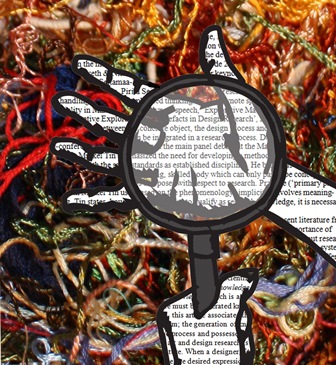A systems theory perspective on the relationship between practice and research in the making disciplines
DOI:
https://doi.org/10.7577/formakademisk.546Keywords:
art and design research, making disciplines, insider research, systems theory, structural coupling, knowledge development, knowledge generation.Abstract
This article discusses the relationship between practice and research in the making disciplines. The discussion is based on a systems theory with reference to the German sociologist Niklas Luhmann (2007) and the way Rasmussen, Kruse and Holm (2007) use Luhmann´s theory. This article constructs and emphasizes the fundamental difference between the practice system and the scientific system. Furthermore, it highlights the distinctions between practice as the development of knowledge and research as the generation of knowledge. In addition to these boundaries, the following four different forms of knowledge are classified and described:1) practical knowledge and 2) professional knowledge, which are both associated with the practice system, and 3) research knowledge and 4) philosophy of science knowledge, which are associated with the scientific system. While emphasizing a fundamental difference between the practice system and the scientific system, this article assumes that art and design research should deal with aspects from both systems. The systems theory term ‘structural coupling’ offers a way to enable the two systems to influence each other while maintaining their own boundaries. Insider research is a structural coupling between the practice system and the scientific system. By exploring art and design processes from within as both the practitioner and the researcher, it is possible to generate knowledge both about and for practice. This article considers art and design research as a subsystem of the scientific system and argues that this approach may strengthen the further development of art and design research.
Downloads
Published
2013-11-19
How to Cite
Riis, K. (2013). A systems theory perspective on the relationship between practice and research in the making disciplines. FormAkademisk, 6(2). https://doi.org/10.7577/formakademisk.546
Issue
Section
Articles
License
Authors who publish with this journal agree to the following terms:
- Authors retain copyright and grant the journal right of first publication with the work simultaneously licensed under a Creative Commons Attribution 4.0 License that allows others to share the work with an acknowledgement of the work's authorship and initial publication in this journal.
- Authors are able to enter into separate, additional contractual arrangements for the non-exclusive distribution of the journal's published version of the work (e.g., post it to an institutional repository or publish it in a book), with an acknowledgement of its initial publication in this journal.
- Authors are permitted and encouraged to post their work online (e.g., in institutional repositories or on their website) prior to and during the submission process, as it can lead to productive exchanges, as well as earlier and greater citation of published work (See The Effect of Open Access).
- The author(s) must manage their economic reproduction rights to any third party.
- The journal makes no financial or other compensation for submissions, unless a separate agreement regarding this matter has been made with the author(s).
- The journal is obliged to archive the manuscript (including metadata) in its originally published digital form for at least a suitable amount of time in which the manuscript can be accessed via a long-term archive for digital material, such as in the Norwegian universities’ institutional archives within the framework of the NORA partnership.
The material will be published OpenAccess with a Creative Commons 4.0 License which allows anyone to read, share and adapt the content, even commercially under the licence terms:
This work needs to be appropriately attributed/credited, a link must be provided to the CC-BY 4.0 licence, and changes made need to be indicated in a reasonable manner, but not in any way that suggests that the licensor endorses you or your use.



